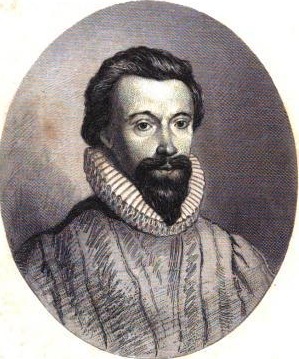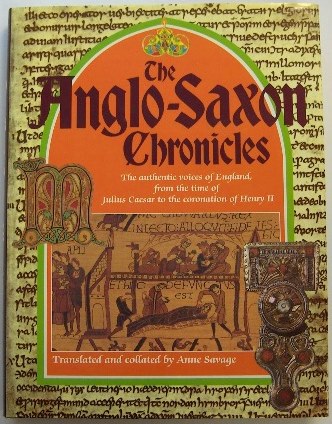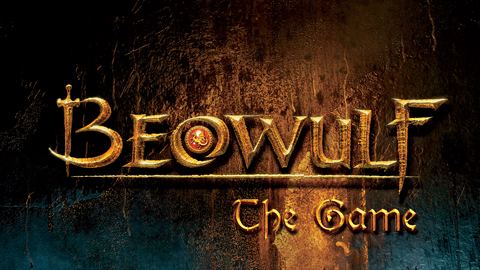The re-Christianizing of England by Celtic missionaries and St. Augustine brought the wealth of a new kind of Literature under an impulse that was very powerful, different and exalted. The new religion brought about a change in the tone and spirit of the language and under its influence began a new creative period in English Literature towards the end of the 7th century. The baptized Anglo-Saxon poets moved away from the pagan themes common to Old Germania and sought subjects for their poems in the Bible and the lives of the saints. The heroism of Judith was sung in the measure that had chanted the deeds of Beowulf, and God and his angels or Christ and the apostles took the form of an English chief with a shining clan of unconquerable clansmen.
The beginning of Christian poetry in English was made by the divinely aided Caedmon, the first English poet who as we gather from Bede’s Ecclesiastical History, transformed the whole course of Biblical history into the most delightful poetry. His poems preserved in the Junian manuscript are poetical versions of Genesis, Exodus, Daniel together with three Christ poems namely – The Fallen angels, The Harrowing of Hell and The Temptation. The most interesting and the longest of poems in the Junian manuscript is Genesis. After singing the praises of the Creator and describing the fall of the angels, the poet proceeds with the Bible story from the Creation to the frustrated sacrifice of Issac. Military metaphors run through the bold and vigorous Exodus which relates the escape of the Israelites and the destruction of the Egyptians in the Red Sea. Daniel, a tame homiletic rendering of the story of the deliverance of three Hebrew children from the fiery furnace emphasizes the force of divine intervention in human affairs. The Christ poems also known as Christ and Satan ranges from a further rehearsal of the story of the angels, through a description of the Harrowing of Hell to the savior’s Resurrection and Ascension and emphasizes upon the difference between Heaven and hell. Judith, which is also ascribed to Caedmon narrates the story of a female warrior in a sophisticated and elaborate style.
A new school of religious poetry, representing an advance in culture over the primitive Caedmonian poems grew up during the latter half of the 8th century under Cynewulf who has written some of the most fluent and melodious verses in Anglo-Saxon poetry on the lives and adventures of saints. There are four poems namely Christ, Elene, Juliana and The Fate of the Apostles which have been signed in runic letters by the poet. The Christ is a series of didactic poems having the qualities of epic, lyric, descriptive and even dramatic poetry centered on the life of Christ. The Fate of the Apostles narrates the missionary labors, journeys and martyrdoms of the “twelve men of noble heat” and is marked by good craftsmanship. Elene, Cynewulf’s masterpiece in vivid narration and profound piety is the story of St. Helena’s discovery of the True Cross at Jerusalem whereas Juliana narrates the story of a Roman virgin martyr. Guthlac, which deals with the life and death of a Mercian saint; Andreas, which narrates the adventure of St .Andrew; Phoenix, an allegorical representation of the resurrection of Christ and The Dream of the Rood, an intense, lyrical and profound poem full of devotional feeling which shows the Cross as a shameful instrument of pain and that of salvation and eternal glory have also been ascribed to Cynewulf.
Other notable poems are Bestiary-Whale, Panther and Partridge– an allegorical moralized description of animals, a group of four short homiletic poems – Gifts of Man, Fates of Man, Mind of Man and the Falsehood of Man, Salomon and Saturn and many more.
The advent of Christianity turned the whole current of Literature into new channels and expanded the range of English poetry. Under the influence of Christianity, praise and prayer were brought to Literature and love for the gentler aspects of nature was stimulated. Christian poetry also gave English Literature its first heroine fashioned after Virgin Mary. The main importance of Anglo-Saxon religious poetry lies in the blending of the original Teutonic civilization with the ideas and sentiments of Christendom. The older poetry penetrated the new and the spirit of the new transformed the old.
Some online learning platforms provide certifications, while others are designed to simply grow your skills in your personal and professional life. Including Masterclass and Coursera, here are our recommendations for the best online learning platforms you can sign up for today.
The 7 Best Online Learning Platforms of 2022
- Best Overall: Coursera
- Best for Niche Topics: Udemy
- Best for Creative Fields: Skillshare
- Best for Celebrity Lessons: MasterClass
- Best for STEM: EdX
- Best for Career Building: Udacity
- Best for Data Learning: Pluralsight







